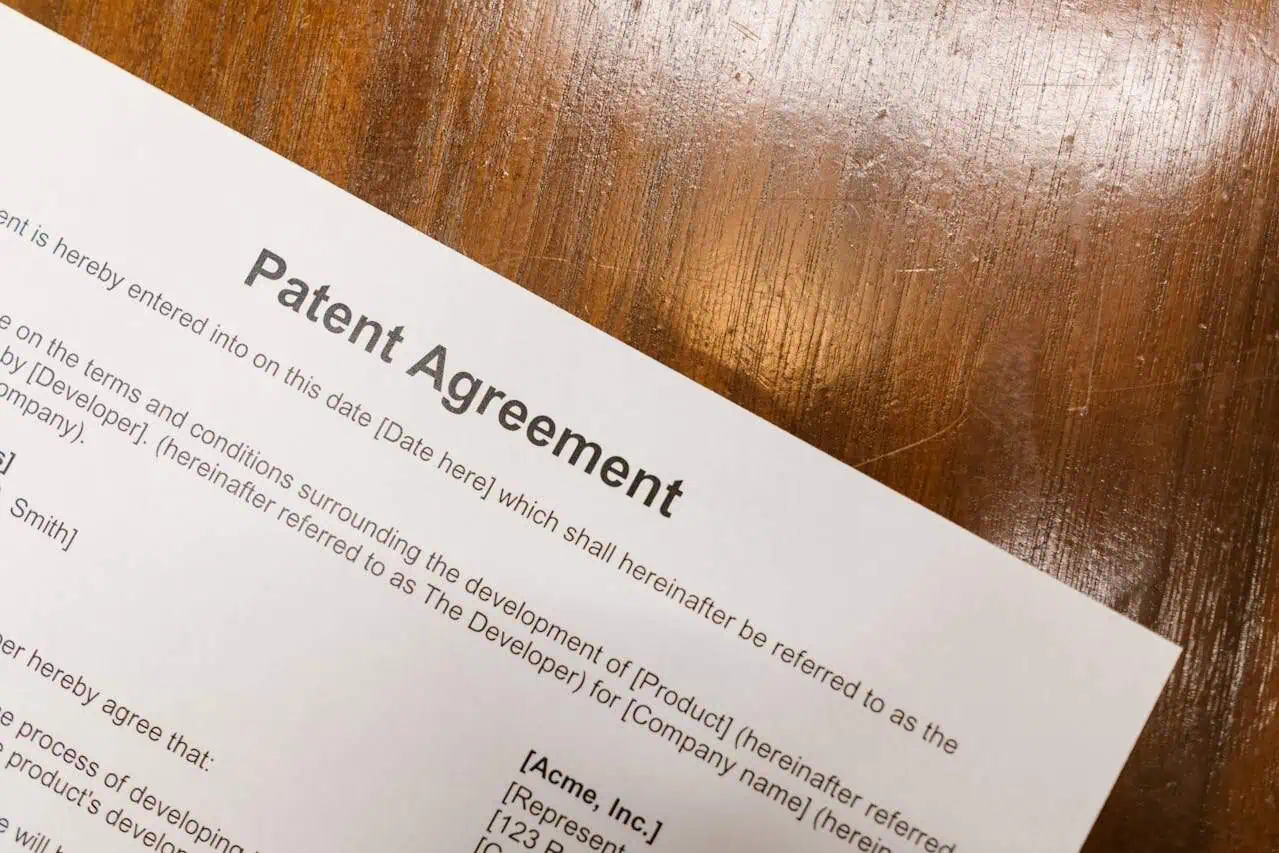Your intellectual property legally belongs to you – but there might come a time when you need to fight for it. In this post, we’ll show you how to protect your IP by following the usual registration processes and using high-quality online legal templates.
What is Intellectual Property?
Intellectual property broadly refers to things you’ve created that you now legally own. It primarily includes the following:
- Copyright: This protects any work you’ve authored yourself, such as books or software.
- Trademark: This protects brand identifiers, including logos, slogans, and even names.
- Patents: These protect inventions and give their creators exclusive rights to sell them.
- Trade secrets: These let you protect formulas and processes that help your business.
If you don’t actively protect your IP, people could leak your secrets, copy your products, and use your iconography to gain an advantage.
Making the effort to protect your property lets you take legal action against anyone who does the above. If you show that you’ll defend your IP, other people will be a lot less likely to try it.
Fair Dealing Explained
Fair dealing is the UK’s equivalent of America’s fair use doctrine and lets people use part of your property for their own ends. However, for their use to count as fair dealing, their material must:
- Only use a reasonable and appropriate amount of your work
- Not affect your place on the market by acting as a substitute
It’s hard to nail down a definition of fair dealing. For example, how do you define the “reasonable amount” of film footage to use when someone reviews it?
Someone might use your material for research, criticism, or teaching; any of these fall under fair dealing. If you’re arguing against a person’s use of your work, you need a good, well-evidenced case.
Do You Need to Register Copyright and Trademarks?
You don’t need to register anything for copyright; this takes effect as soon as you make the work in question. You won’t have to mark the work with a © symbol, but this can show people that you won’t stand for them stealing your property.
Trademarks, meanwhile, have a full UK register, and applying can take up to four months. Once the Intellectual Property Office grants you a trademark, it lasts for ten years. You can’t register a trademark if it’s offensive, misleading, too common, or uses a national flag without permission.
The Patent Process
Patenting an invention could take years – it’ll likely be at least 18 months before the IPO starts to examine it. If you get a patent, it will last five years, which you can extend up to 20.
Knowing what can and can’t get a patent could stop you wasting your (and the IPO’s) time. They will likely deny your application if your creation is any of the following:
- An artistic work
- A medical invention
- A scientific theory
- A new type of thinking
- A biological process
The rules around software are also quite complex. For example, you can only patent software with applications for industry, such as better video processing, more efficient machinery control systems, or stronger data compression.
Addressing IP Violations
If someone steals your IP, your first step should be a cease-and-desist letter. This informs them that you know they’re misusing your IP and is usually enough to get them to stop. Use an online C&D template; you’ll just need to fill in the specifics about your property.
When sending your cease-and-desist letter, attach any evidence you have. This could be a logo that looks suspiciously like yours, or a product they sell that relies on your patents.
Should the infringements continue, however, the IPO recommends mediation. This is relatively low-cost and has quite a high chance of working, but there’s nothing legally binding about it – an infringer could easily ignore it if they wanted.
If all else fails, sue the infringer. This could end with an injunction that formally bans them from misusing your IP, fines, or even jail time. You can alternatively report them to Trading Standards, who might make their own case against them.
International Protections
A number of treaties and laws protect your copyrighted material even abroad. For example, the Berne Convention keeps your work safe from copyright infringement in over 180 member states while establishing minimum IP standards.
As for patents, the Patent Cooperation Treaty lets you file a single “international” patent that will be valid in over 150 nations.
Should somebody violate your IP abroad, you can still send a C&D letter. If this doesn’t stop the infringement, consult an IP lawyer in that country and, if you have a case, sue them.
Final Thoughts
Registering your intellectual property is only one part of the puzzle. You should also actively look out for anyone who might be misusing your property, and be ready to fight for it, possibly even in the courts.

